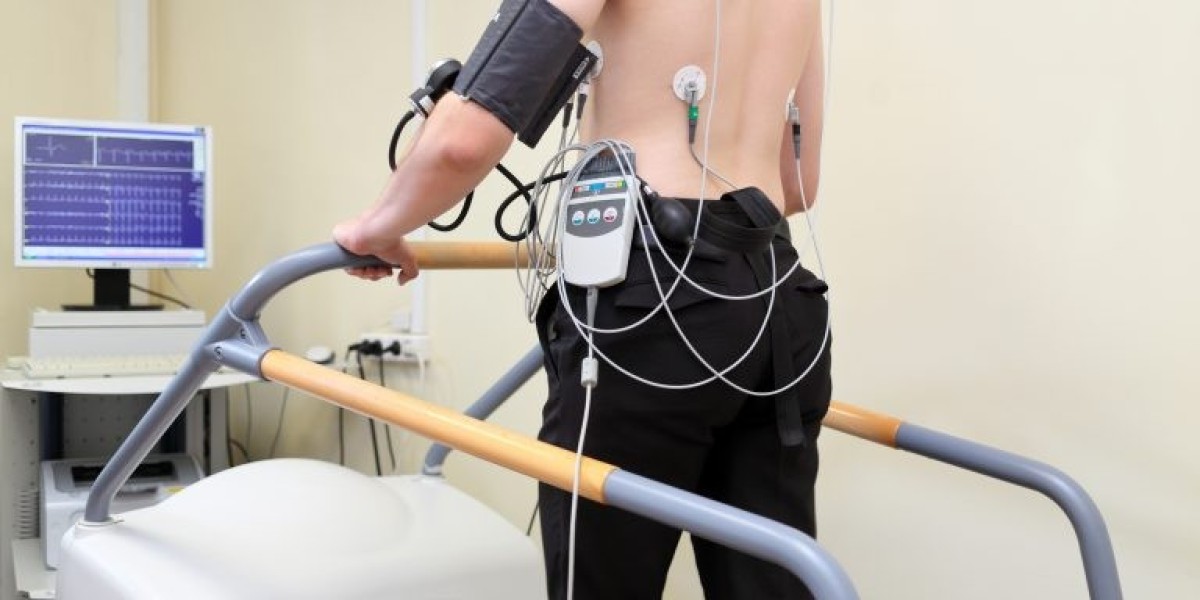Treadmill Test Near Me: Everything You Need to Know Before You Book
If you’ve ever experienced unexplained chest pain, breathlessness, or simply want to assess your heart health, a treadmill test can be a lifesaver. Also known as a stress test or exercise stress test, this procedure helps doctors evaluate how your heart performs under physical pressure. Whether you’re preparing for a cardiac check-up or starting a fitness journey, it’s essential to understand this test in detail.
Looking to book a treadmill test near me? Start by exploring what the process involves, its benefits, and how it helps monitor your cardiovascular fitness.
What is a Treadmill Test and Why is it Done?
Understanding the Basics of the Test
A treadmill test is a diagnostic procedure that measures how your heart responds to physical exertion. During the test, you walk on a treadmill while your heart rhythm, blood pressure, and breathing are closely monitored. It’s a non-invasive way to detect potential heart problems that might not show up when you're at rest.
Purpose of the Test
Doctors usually recommend a treadmill stress test for the following reasons:
Evaluate symptoms like dizziness or shortness of breath
Diagnose coronary artery disease
Assess your heart rhythm and monitor arrhythmias
Determine safe levels of exercise
Guide treatment plans for heart-related conditions
How the Test is Conducted
Pre-Test Preparation
Before your test, avoid eating or drinking for at least two hours. Wear comfortable clothing and sports shoes. Inform your doctor about any medications you’re taking, as some may affect test results.
The Process
Electrode Placement: Small patches (electrodes) are attached to your chest, arms, and legs to record your ECG.
Resting Data: Your heart activity is measured before the exercise begins.
Walking Phase: You start walking on the treadmill at a slow pace. The speed and incline gradually increase.
Monitoring: Throughout the test, your heart rate, blood pressure, and breathing are continuously tracked.
Post-Exercise Evaluation: Once the test is complete, readings are taken as you cool down.
Benefits of Undergoing a Treadmill Stress Test
1. Early Detection of Heart Issues
The test can uncover hidden heart problems like blockages or irregular rhythms that don’t appear during a routine exam.
2. Safe Exercise Guidance
Planning a workout routine? This test helps determine the safe limit for your heart under physical stress.
3. Monitor Heart Medications
If you’re on medication for high blood pressure or heart disease, the test will show how well your treatment is working.
Who Should Consider Taking a Treadmill Test?
If you’ve experienced any of the following, it’s wise to consult a doctor:
Chest discomfort during exercise
Unexplained fatigue or dizziness
History of heart disease in the family
High cholesterol or blood pressure
Pre-surgery cardiac clearance
What Happens After the Test?
After the treadmill test, your doctor will analyze the data to determine if there are any signs of heart trouble. If abnormalities are found, further tests such as echocardiograms or angiograms may be recommended.
For many, the results offer peace of mind or help guide fitness goals and heart health strategies. It's also a powerful preventive measure, especially if you're over 40 or lead a sedentary lifestyle.
Conclusion
When it comes to protecting your heart and living a healthier life, knowledge is power. A treadmill stress test offers a comprehensive look at how your heart handles physical exertion and can prevent serious health risks when caught early. So if you've been searching for a treadmill test near me, it's time to take a proactive step towards your heart health.
Frequently Asked Questions (FAQs)
1. Is the treadmill stress test painful?
No, the test is non-invasive and doesn’t involve pain. You may feel tired or short of breath as intensity increases, but it’s completely safe and monitored.
2. How long does the entire test take?
Typically, the treadmill stress test takes around 30 to 45 minutes, including preparation and recovery time.
3. Can I eat before the treadmill test?
It’s recommended to avoid food and drinks at least 2 hours before the test to ensure accurate results.
4. Is this test suitable for elderly individuals?
Yes, the test can be safely performed on older adults, and it often helps in detecting age-related cardiovascular issues early.
5. Do I need a doctor’s prescription for this test?
In most diagnostic centers, a doctor’s referral is required. However, some health packages may include the test directly.
6. Will I receive the results immediately?
Initial readings may be shared immediately, but detailed interpretation usually takes a day or two after being reviewed by a cardiologist.
7. What if I can’t walk on the treadmill due to a physical issue?
If you're unable to walk, a pharmacological stress test using medication to mimic exercise may be used instead.
8. Can the test detect all types of heart problems?
While it’s highly useful, it may not detect all heart conditions. It’s often used alongside other tests for a complete diagnosis.
9. Are there any side effects or risks involved?
The test is safe when performed under medical supervision. Rarely, it may cause dizziness or palpitations in some individuals.
10. Can I resume normal activities after the test?
Yes, most people can go back to their routine right after the test unless advised otherwise by the doctor.







